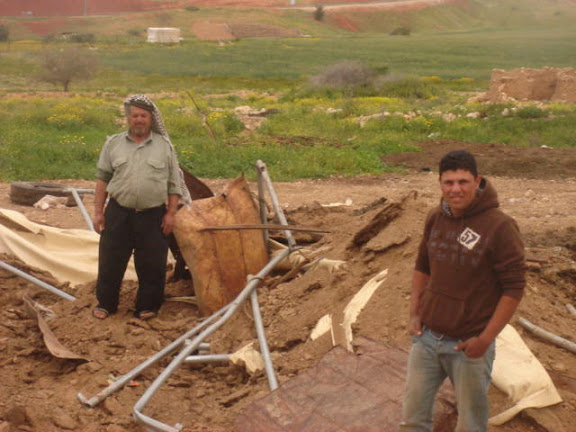Tag: Israeli Committee Against House Demolitions
-
Qusra demolition orders: “If they destroy this house, where will we go?”
7th July 2013 | International Solidarity Movement, Nablus Team | Qusra, Occupied Palestine On Wednesday July 3rd the Israeli army entered the village of Qusra, south east of Nablus, issuing eleven demolition orders on houses and buildings. At 9am two army jeeps arrived at the home of Seqer Musbah and presented him with demolition orders…
-
Demolitions: Israel’s path of destruction through the Jordan Valley
by Andreas 27 March 2012 | International Solidarity Movement, West Bank Families and their livestock are left without shelter as Israeli Occupation Forces soldiers and bulldozers leave a path of destruction El Hemmi, al-Farisiya and Khirbet Homse in the Jordan Valley On the 26th of March several houses and animal barricades were demolished in the…
-
Remembering Vik
Jeff Halper | Israeli Committee Against House Demolitions Less than two weeks after losing another friend and comrade, Juliano Mer-Khamis, I now have to mourn and remember my fellow Free Gaza shipmate Vittorio (Vik) Arrigoni, who was brutally murdered last night by religious extremists in Gaza (and who actually resembled Juliano, physically, in his buoyant…


